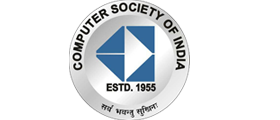After completing your original research work, you have to submit your academic writing to get your PhD degree, that piece is known as dissertation. That dissertation will be the longest writing work you have done in your entire education. For completing a dissertation work you have to have skills like writing, to conduct research and for analyzing.
How to Draft Dissertation
You could be very much confused to know from where to start your work. For writing dissertation you have to follow a well-organized and systematic approach. This article will serve as a guide for you to create a dissertation.
- Select a Relevant Topic:
>> Choosing a topic is the first thing you have to do before writing dissertation, which is also difficult.
>> Then move on to selecting a research topic in which you have interest and basic knowledge that will keep you more focused on the research work.
>> The topic you choose should not only hold your interest, it should also make some contribution to the knowledge on current field. So choose a topic which can fill the gaps in current trend.
- Conduct a thorough Literature Review:
>> By doing a literature review you can identify the gaps in existing literature, key studies and also the controversies in current knowledge. With the help of those you can conduct a research which will contribute to the knowledge on current field.
>> Literature review will allow you to find the particular area in field which needs further investigation. If you do a perfect review on literature you can also able to strengthen your research hypothesis and question.
>> This process can also help you in some other ways like engaging in scholarly conversation, making improvement in existing knowledge and to demonstrate the importance and uniqueness of your research.
- Formulate Research Question or Hypothesis:
>> You have to frame a clear hypothesis or research question that will guide you through your research process and keeps you more focused towards it.
>> This research question is going to address the issue you noticed and set a boundary for your study. That question should be concise, clear and should also focus on the main goal of your investigation.
>> Hypotheses are generally the statement which predicts the expected result of research. That should be tested further to get the original outcome of the research.
- Develop a Research Proposal:
>> The research proposal is a plan of your dissertation which will serve as a roadmap for your process. The research proposal should outline your methodology, objectives also the outcome you expect from your research.
>> The research proposal should have sections such as introduction, literature review, hypothesis or research question, research methodology and the time allotted to complete each stage.
>> While crafting a research proposal you should consider its framework, method to collect data, ethical considerations and research design.
- Ethical Considerations and Research Approvals:
>> When you are doing research which involves any human subjects, for that you should receive approval from review board of institution or ethics committee in order to maintain ethical conduct. That is known as ethical consideration.
>> Ethical consideration is very much important to ensure the safety, well-being and privacy of the participants who are engaged in that investigation. You should also ensure confidentiality, informed consent also telling the participants about the risk involved in it.
>> You should do an ethical review if your research works involve humans. The research approved by the ethical committees or the institutional review boards will prove that your work have maintained the ethical integrity.
- Choose a Research Methodology:
>> Choose a research method, either quantitative or qualitative approach to conduct experiments, case studies or surveys. The methodology you choose should match your research objective and research question.
>> The research methodology serves as a bridge between research question, information type and the main motive of study. One have to prove that the methodology chose by them for doing research matches the objective of research and also maintain reliability and validity of the result.
- Collect Data:
>> Collection of data is very important for drafting a dissertation. At this stage the research plan which is crafted comes to execution in the form of information.
>> Follow the methodology you chose for collecting data by maintaining ethical conduct and consistency throughout the process.
- Analyze Data:
>> Next the data collected should be analyzed using the respective methods opted. Connect your findings to the research question you addressed or to the hypothesis you formulated with correct explanation.
>> The analysis method may vary based on your research question and the collected data type.
- Write the Dissertation Proposal:
>> The dissertation proposal should have sections such as introduction, literature review, hypothesis or research question, research methodology and the time allotted to complete each stage, which will give a complete plan for the research.
>> This proposal is nothing but a roadmap which outlines the objective, rationale, expected result and methodology of research.
- Create a Dissertation Outline:
>> For creating an outline for your dissertation you have to arrange the following sections like introduction, methodology, literature review, conclusion, discussion, result also the bibliography into different chapters.
>> Every chapter should be arranged in a way to maintain proper flow by following the guidelines from respective institution.
- Write each Chapter:
>> Start writing your chapters by following the created outline. Make sure to maintain a smooth flow between sentences and each section. You have to briefly explain about the insights and research results.
- Revise and Edit:
>> Editing is done in order to revise and review your dissertation for coherence, consistency and clarity. Check for errors like spelling, formatting and grammar. Get help from your advisors or peers to make your work better.
>> Regular revision and iterative editing will end up in producing a high quality and standard output for your dissertation.
- Include Visuals (if applicable):
>> While integrating visuals to your dissertation, add it to the correct section, alignment and labeling should be done properly in order to enhance the quality of presentation.
- Integrate feedback:
>> To make your dissertation much better and robust, get feedbacks from your peers or advisors and incorporate it to your work.
>> By receiving feedback you can get to know your work from different perspectives which will make your work improve in quality.
>> By incorporating the received feedbacks to your work, shows your commitment and improvement towards your work, which will reflect in your result and the enhancement of knowledge in that particular field.
- Prepare for Defense (if required):
>> If this process is included in your evaluation process, then you should be well prepared to face it. You have to prepare a presentation which should summarize your research. Be ready to answer the questions which will be raised by them, discuss with your committee members for more clarification.
- Final Review and Proofreading:
>> Do final proofreading and review to ensure error free dissertation.
>> The time you spend on your final review will help you provide a meaningful result.
>> If you have completed this stage now your dissertation is ready to be submitted.
- Submission and Graduation:
>> Submit your dissertation by following the proper procedure required by institution within the deadline.
>> You should keep up the guidelines mentioned by your institution throughout the process.
Each institution will follow their separate set of guidelines and have different expectations or requirements for doing dissertation work. So, do check with the set of instructions given by your respective department.












